'A stain on the countryside': Police are getting tough on the shooting of rare birds of prey
The shooting, poisoning and trapping of birds such as red kites and buzzards is a crime previously described by the RSPB as "a stain on our countryside" and has risen in recent years after they were introduced to Yorkshire in the late nineties.
It is thought the offences have been happening for a long time, although increased awareness from the national police campaign Operation Owl has led to a rise in reports from the public.
Advertisement
Hide AdAdvertisement
Hide AdNidderdale in particular has been highlighted as a hotspot for the crime, while shootings of birds of prey have also been reported around West Yorkshire.
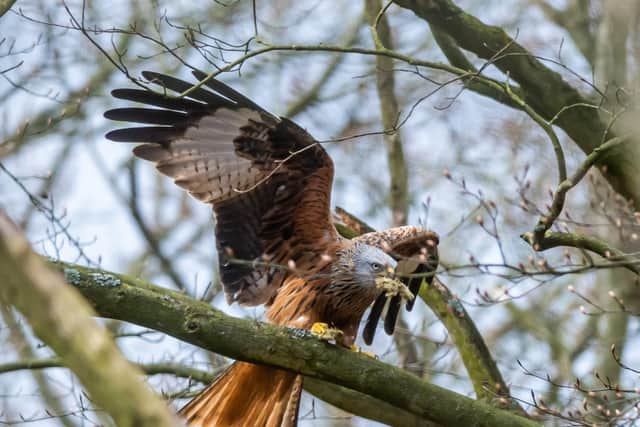

Disturbingly, there have also been reports of pets being killed after eating poisoned meat left out in suspected attempts at targeting scavenging birds of prey.
Between November 2018 and March of this year, there were 15 crimes recorded in North Yorkshire alone of birds being shot, poisoned or trapped, or tagged birds reported missing. Of these, nine had been shot, including a barn owl found shot in Ryedale in December 2019.
Inspector Matt Hagen, who is Head of North Yorkshire Police's Rural Taskforce, said: “These crimes are very difficult to investigate because they happen in isolated places and there is often no one around to witness them.
Advertisement
Hide AdAdvertisement
Hide Ad"From what I have seen, some of the people that persecute birds of prey are of the opinion that they diminish the numbers of pheasants, grouse or partridges.
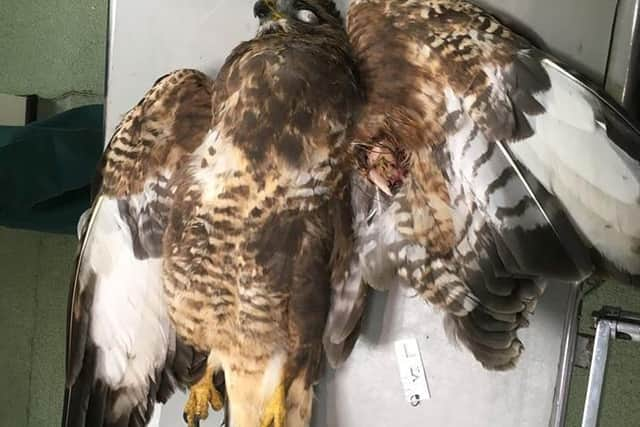

"Many gamekeepers are very pro-conservation, but it just takes one or two individuals in that industry to make a real impact. This is especially the case with hen harriers because they are so endangered. Many birds of prey that are persecuted we find that they were on a grouse moor, or at least near to one of those areas.
“I do know that with the hen harriers, there are not many left in this country, and if this carries on it may well be that they disappear."
Poisoning is also an issue, where perpetrators leave out poisoned rabbit carcasses for carrion-eating birds such as red kites to find. This poses a risk to local wildlife, pets and even children, police have said.
Advertisement
Hide AdAdvertisement
Hide AdInsp Hagen added: "We recently had two dogs poisoned in Pateley Bridge, one of whom sadly died. This is still being investigated, but it happened in an area known as a hotspot for these crimes.”
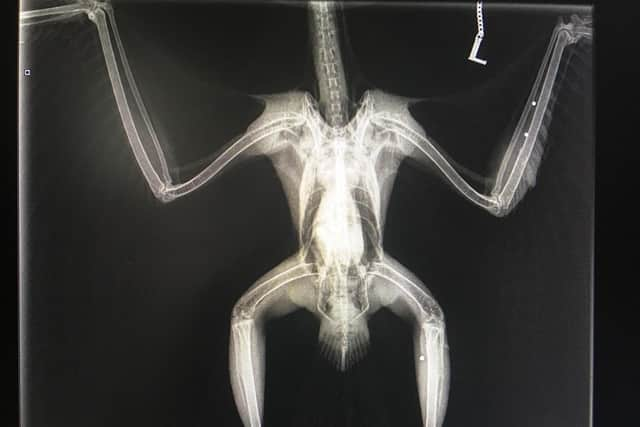

Operation Owl is a campaign originally spearheaded by North Yorkshire Police which has since been made into a national campaign urging the public to be eyes and ears for crimes committed against birds of prey, as most occur in remote areas.
Superintendent Nick Lyall of Bedfordshire Police currently leads the campaign, and has been meeting with the Crown Prosecution Service and senior Government ministers to urge for the crimes to be upgraded from summary-only offences - which can only be dealt with by magistrates and have more lenient sentences - to either-way offences, meaning they can be tried in a crown court.
Supt Lyall said: "We can do search warrants linked to wildlife crimes, but we can't use our serious crime tactics of covert policing, such as surveillance, to catch these offenders. So for example, if we knew of a nest that was being targeted, we currently can't put cameras in to see who was disturbing that nest."
Advertisement
Hide AdAdvertisement
Hide AdSupt Lyall added that only one or two people are convicted each year for crimes against these birds, with police relying mainly on witnesses as evidence.
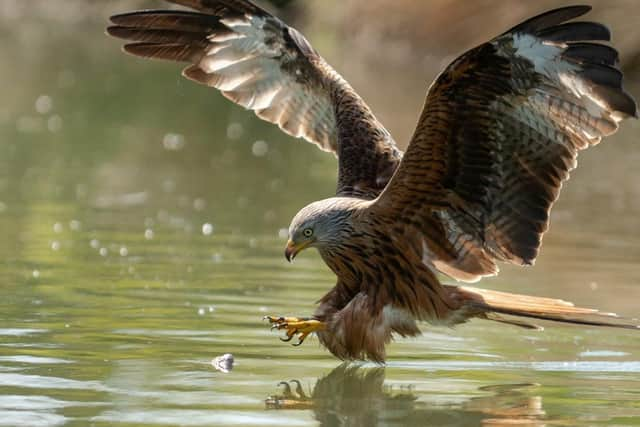

"With the remote places these crimes are happening in, that makes it very difficult to prosecute," he added.
The impact of these crimes is not just felt by the community, but on the environment as well.
A report published by the Nidderdale Area of Outstanding Natural Beauty in September revealed that red kites were failing to expand breeding territory from Wharfedale into neighbouring Nidderdale.
Advertisement
Hide AdAdvertisement
Hide AdLuke Steele is a conservation campaigner from the Ban Blood Sports in Yorkshire group, who said the shooting of these rare birds is having "a fundamental impact on the ecology of these areas".
Mr Steele said: "Hen harriers have been virtually eradicated. As a result, some grouse moors are lacking the cornerstone species that should be there.
"The police have got a hell of a difficult job getting these cases into court."
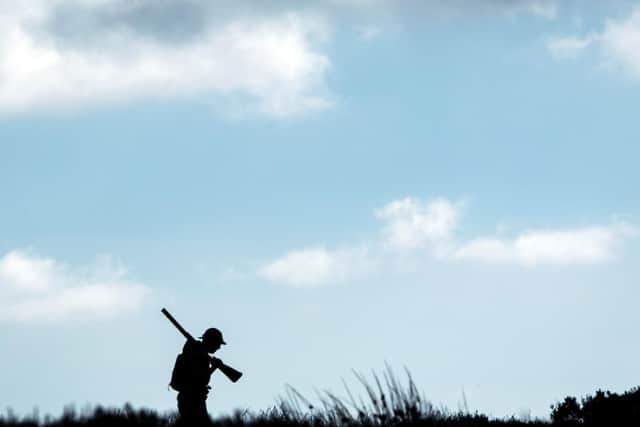

Despite this there is hope, and most gamekeepers and landowners are now strongly committed to conserving all species, with 2019 being a record year for endangered hen harriers breeding.
Advertisement
Hide AdAdvertisement
Hide AdThe RSPB's latest Birdcrime report also found that only five out of 87 confirmed crimes in England were directly connected to grouse moors.
Grouse moor owners in Scotland are meanwhile facing proposals for new licences which would be removed if it was found birds of prey were being shot on their land.
Mr Steele added: "It would be great if we could impose similar legislation in England."
Amanda Anderson, director of the Moorland Association, said: “Grouse moors welcome birds of prey and in Yorkshire alone estates have reported peregrine, merlin and hen harriers nesting and living on those landscapes.
Advertisement
Hide AdAdvertisement
Hide Ad"Last year was a record-breaking breeding season for hen harriers in England and many estates are enthusiastic partners in the government-led hen harrier recovery action plan.
"Estates and gamekeepers are also actively working with police authorities in Operation Owl – an initiative to raise awareness of raptor persecution. We encourage reporting of any suspicious incident and therefore a rise in reporting is expected.
“We condemn any illegal activity and Moorland Association members have signed up to a cross-sector zero tolerance approach to wildlife crime.
"We do not think though it is accurate to blame grouse moor management for the majority of incidents. The last Birdcrime report issued by RSPB shows that only five out of 87 confirmed incidents across the whole of England were directly linked to grouse moors.
Advertisement
Hide AdAdvertisement
Hide Ad"Of course more can be achieved to help eradicate the issue but there has been a huge amount of progress made and if there is a trend in raptor persecution, we believe it is a downward trend.”
The National Gamekeepers' Organisation has echoed the Moorland Association in saying gamekeepers are currently throwing their energies into conserving rare birds over grouse moors.
John Clarke, Northern Director at the NGO, said: "The conservation that does go on in the North of England, as anywhere else in the UK, on managed ground is second to none. As an organisation, we put a statement out at the beginning of the year to say that part of our ethos was that we would not tolerate any part of wildlife crime and anybody found guilty will be expelled.
"Some birds such as curlews are actually increasing on moorland because of conservation efforts.
"Sadly, there will always be one or two bad apples as with any profession. But as gamekeepers we stand robustly against anybody who is found guilty of wildlife crimes."